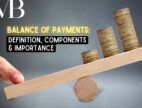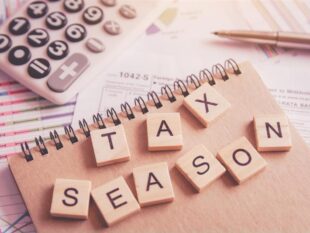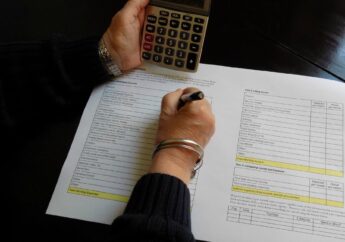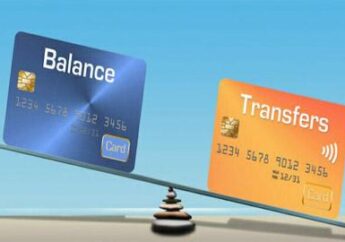A Comprehensive Guide to Choosing a Fixed Deposit with the Best Interest Rate
by Joy Majhi Banking Published on: 02 March 2024 Last Updated on: 26 September 2024

Fixed Deposit (FDs) are a popular and secure investment option in India. They offer investors a guaranteed return on their investment, making them a low-risk investment option. The primary attraction of an FD is the interest rate offered. The rate of interest offered on an FD varies across banks and non-banking financial companies (NBFCs). This article serves as an extensive guide for choosing an FD with the best interest rates.
What is a Fixed Deposit?

Fixed deposit or FD is a type of investment where an individual invests in a lumpsum amount for a specific time period within the bank. Moreover, the amount that is invested within the fixed deposit tends to earn interest at a fixed rate. Similarly, this is done through the set time related to the opening of the account.
Fixed deposit holders have the right to choose to receive interest earned either monthly, quarterly, or yearly based on their preference.
FD is a popular choice among investors as it is the safest investment option available in the financial market. Moreover, the returns are assured, and there is no risk of capital loss. Similarly, FDs also provide a better rate of interest compared to a savings account.
This makes fixed deposits a safe and attractive investment choice. Especially for people having stable and predictable returns. There are also fixed deposits that allow you to save taxes.
How does a fixed deposit work?
When you open a fixed deposit account, you will be required to deposit a certain amount of money. The amount that you will deposit will not be withdrawable until the maturity of the deposit. Moreover, the period of investment can vary from 7 days to 10 years. This will depend on your personal preference.
The interest rate offered by a fixed deposit will depend on the period of investment and the amount deposited. The longer the investment period will be, the higher the interest rate and higher interest will be earned by you.
The interest that you will earn on your fixed deposit will get credited to your savings account. Or might be reinvested in the fixed deposit during the end of tenure.
Features and Benefits of Fixed Deposits

Here are some of the features and benefits associated with opening a fixed deposit.
Assured Returns
Fixed deposits are known to have fixed interest rates, assuring a predictable return on your investment.
Flexible Tenure
You can choose the tenure that will suit your financial goals. This can range from a few days to a decade.
Safety and Stability
Fixed deposits are known to be the safest type of investment option that provides stable growth for your savings.
Ease of Investment
Opening a fixed deposit can reduce lengthy documentation. This means you can also open an FD account online.
Tax Deductions
Some fixed deposits tend to offer tax benefits like the five-year tax saving FD. This qualifies for deductions under Section 80C of the Income Tax Act.
Regular Income
Fixed deposits tend to offer periodic interest payout on your savings account. This makes it a great source of regular income.
Capital Preservation
Fixed deposits will protect your principal amount and offer a guaranteed return. That will also preserve your investments.
Liquidity
Inspite of the lock-in period in your fixed deposit. You will be able to access funds in case of emergencies by availing through loans or premature withdrawal of the fixed deposit.
Tips to choose the best interest fixed deposits

1. Analyze the Interest Rates Offered by Different Institutions:
The first step in choosing the best FD is to analyze the interest rates offered by different banks and NBFCs. You can visit the websites of banks and NBFCs to check the best FD interest rates offered. Alternatively, you can visit online aggregator websites that compare interest rates offered by various institutions.
2. Check the tenure of the FD:
The tenure of the FD is the length of time for which you are willing to keep your money invested. The interest rate offered by different institutions varies according to the tenure of the FD. Generally, the longer the tenure of the FD, the higher the interest rate offered will be. Hence, it is worthwhile to invest in an FD for a longer tenure.
3. Choose the best interest rate:
Once you have analyzed the interest rates offered by different banks and NBFCs, the next step is to choose the one with the best interest rate. It is important to consider the inflation rate in India and choose an FD that offers an interest rate that is higher than the inflation rate. This ensures that the returns from the FD are not eroded by inflation.
4. Verify the credibility of the institution:
It is important to verify the credibility of the institution before investing in an FD. Look for established banks and NBFCs with a good reputation. You can check the credit ratings of the institution to ascertain its credibility. It is advisable to invest in an FD with a reputed institution, even if the interest rate offered is slightly lower.
5. Use an FD calculator:
To choose the best FD, it is advisable to use an FD calculator. An FD calculator helps you determine the maturity value of the FD based on the interest rate, tenure, and investment amount. It helps you compare the returns offered by different institutions and choose the best one.
6. Check for premature withdrawal of the FD:
Before investing in an FD, it is important to check the rules for premature withdrawal of the FD. There may be penalties for premature withdrawal, and the interest rate offered may be reduced. It is advisable to invest in an FD only if you are sure that you will not need the money before the maturity of the FD.
7. Consider the tax implications:
The interest earned on an FD is taxable as per the income tax laws in India. Hence, it is important to consider the tax implications before investing in an FD. You can choose an FD that offers tax benefits, such as tax-saving FDs or senior citizen FDs.
Summary
Fixed Deposits (FDs) are a popular and secure investment option in India, offering a guaranteed return on investment. To choose the best FD, it is important to consider factors such as the interest rate, tenure, credibility of the institution, premature withdrawal rules, and tax implications. The investor must use an FD calculator and consult a financial advisor before investing in an FD. The interest earned on an FD is taxable as per the income tax laws in India. Investors must gauge all the pros and cons of trading in the Indian financial market before investing any money.
In conclusion, choosing the best FD requires careful consideration of various factors such as the interest rate, tenure, credibility of the institution, premature withdrawal rules, and tax implications. It is advisable to use an FD calculator and consult a financial advisor before investing in an FD. Investors must gauge all the pros and cons of trading in the Indian financial market before investing any money.






































































































